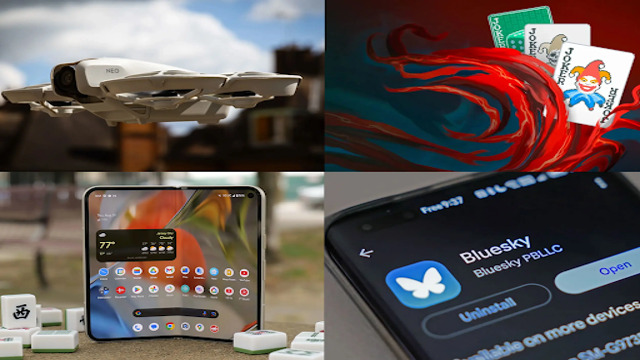
Engadget's yearly review highlights the top tech achievements of 2024, showcasing the most impressive innovations in the industry.
Looking back at 2024, many expected it to be another tough year, filled with challenges like political conflicts and the rapid rise of AI. But instead of despair, the tech world offered some exciting highlights. Despite the ongoing struggles in global politics and dissatisfaction in many sectors, tech experienced some true breakthroughs that made people smile. From gaming to new devices, these standout innovations remind us that tech still has plenty to offer in a constantly changing world.
One of the most unexpected success stories came from a mysterious Canadian game developer known as LocalThunk. While no one knew his true identity, his game, Balatro, took the world by storm. Released in February, Balatro quickly gained millions of fans across different platforms. This quirky game, a twist on poker, earned a nomination for Game of the Year at The Game Awards and has even inspired merchandise like physical card decks. LocalThunk’s success is a testament to the power of indie game development, with Balatro standing tall next to classics like Minecraft and Stardew Valley. Interestingly, despite its similarities to poker, LocalThunk has made it clear he does not want the game to be linked to gambling platforms, even going as far as creating a will to prevent it.
Another significant tech win came in the social media world. Bluesky, a platform that had been in invitation-only beta, opened up to the public at the start of 2024. In just a few months, it exploded in popularity, amassing over 25 million users. Bluesky’s open-source, decentralized approach made it a compelling alternative to the more commercial social platforms like Meta’s Threads. While it’s still far behind Threads in user numbers, Bluesky is quickly gaining influence, especially in terms of its innovative features. Its approach to user privacy and political content makes it a potential game-changer for online conversations, even though it still has challenges to address, like improving user verification.
On the hardware side, Google’s Pixel 9 Pro Fold stole the spotlight with its foldable design. Unlike many of its competitors who’ve experimented with unique screen sizes, Google kept things simple. The Pixel 9 Pro Fold offers a regular phone experience when closed and opens up to reveal a mini-tablet. It's build quality and performance surpass its predecessors, and with one of the best cameras in the foldable phone category, it’s hard not to be impressed. While it may not be affordable for everyone, it represents a leap forward for foldable devices.
Augmented Reality (AR) glasses also made significant strides in 2024. Companies like Meta and Snap have been working on AR for years, and this year, their efforts began to bear fruit. Snap released its second pair of AR Spectacles, and Meta introduced its Orion AR glasses prototype. While still bulky and expensive, these devices show real progress and could eventually replace smartphones as the go-to device for information overlaying in real life.
In the realm of laptops, ASUS impressed with the Zenbook Duo, a dual-screen laptop that combines performance with versatility. This sleek device has two 14-inch OLED displays, making multitasking a breeze. For those on the go, it’s an impressive tool that doesn’t sacrifice portability for functionality.
In the drone market, DJI’s $200 Neo drone gained attention for its simplicity and accessibility. Small, easy to use, and packed with features like 4K video recording and acrobatic tricks, the Neo is perfect for content creators. Despite some drawbacks, such as the lack of obstacle sensors, its value for money is undeniable.
The reMarkable Paper Pro also made waves this year, becoming an essential tool for those looking for a distraction-free writing experience. With improved hardware and a larger screen, it’s become the go-to choice for productivity-focused individuals.
Lastly, Google’s NotebookLM emerged as an innovative AI tool that generates podcast-like summaries from documents and links, offering a fun and engaging way to absorb information. Although it’s still in its early stages, it shows the potential for AI to enhance content consumption in new, exciting ways.















